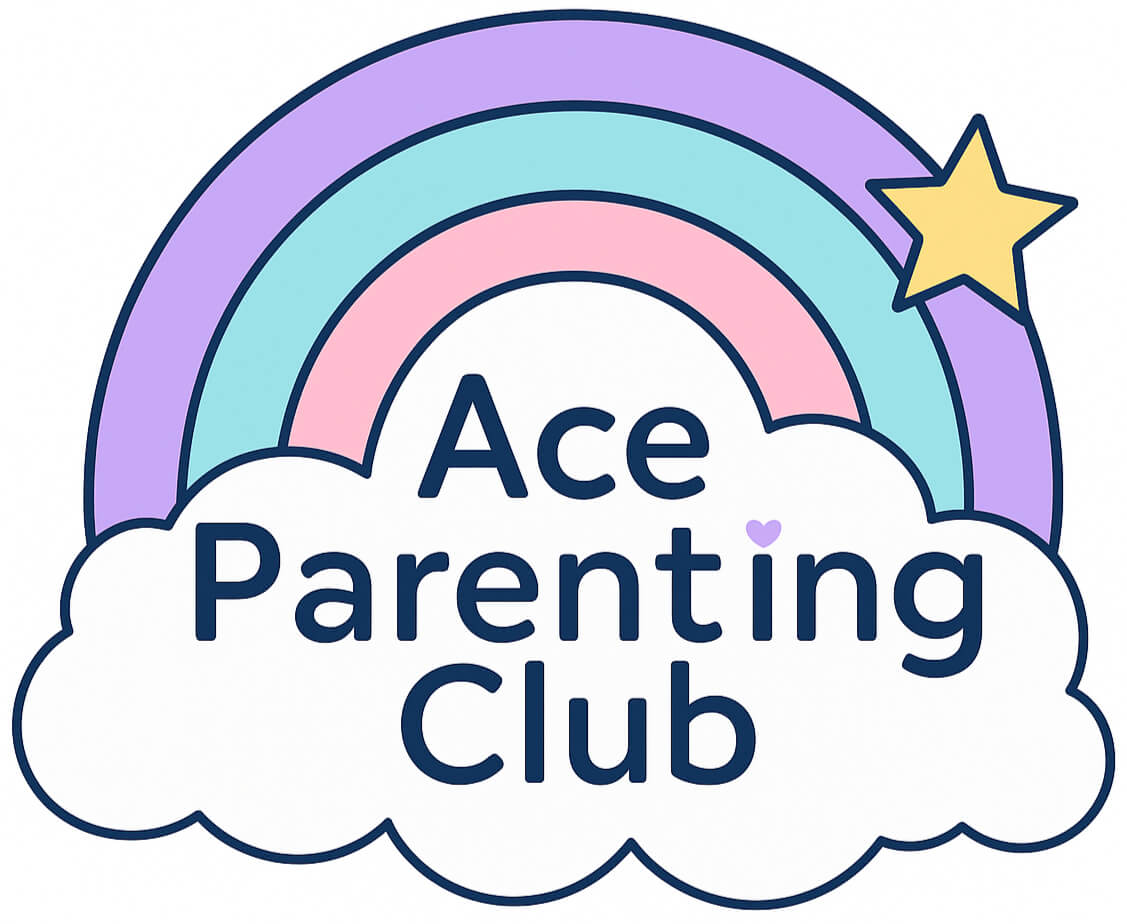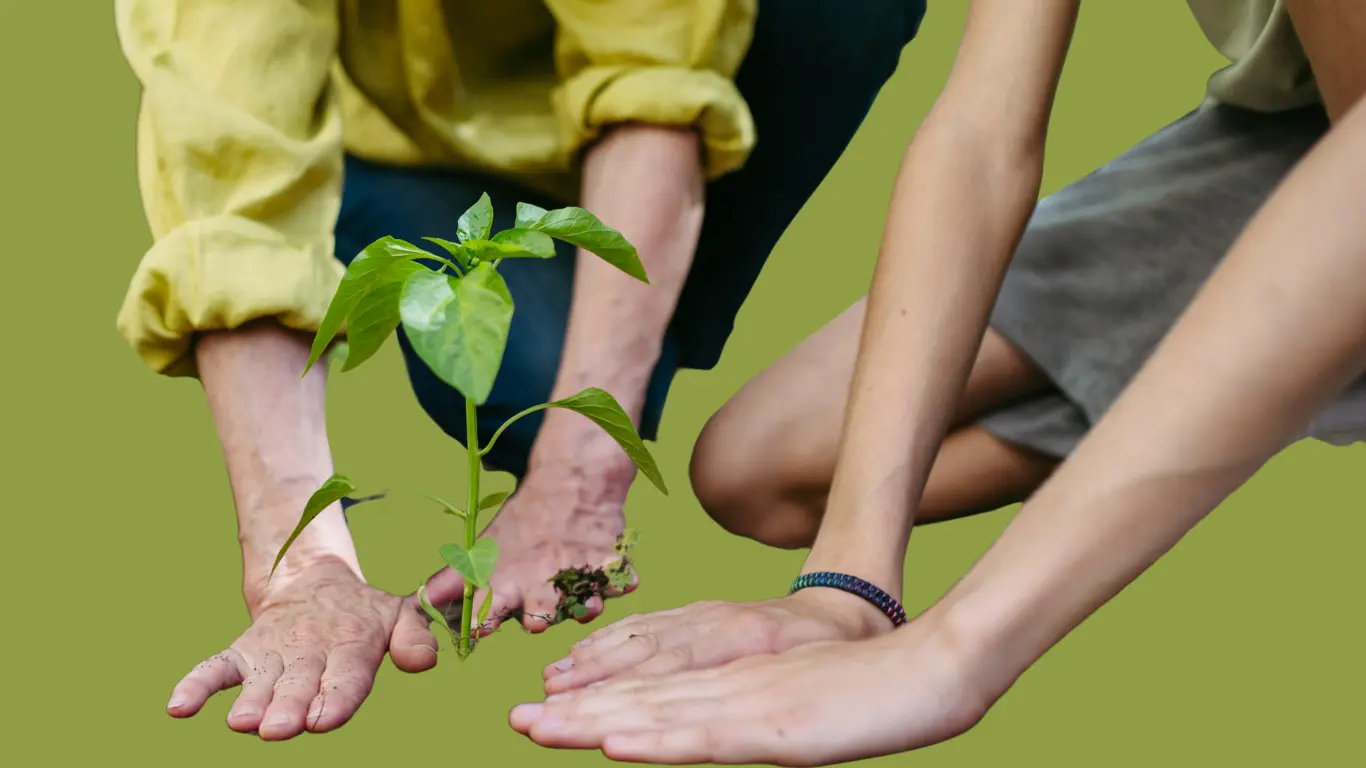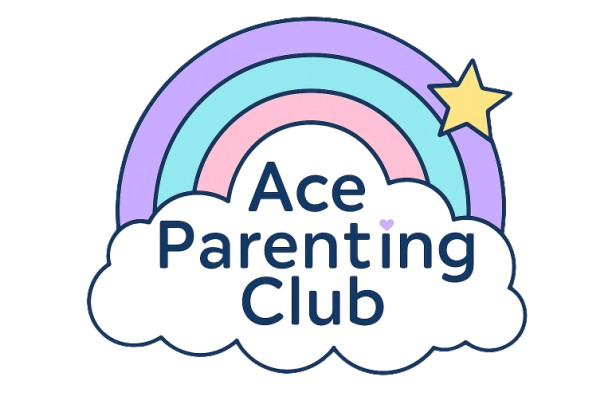Have you ever wondered what makes forest school different from traditional classroom education? As a mum, a qualified primary school teacher and someone who works in a forest school, I’ve seen first-hand how this unique, nature-based approach can transform the way children learn and grow.
Forest school is about more than just being outdoors. It focuses on long-term, child-led learning that takes place in natural surroundings. Children explore, solve problems, and build independence at their own pace, developing real skills through real experiences.
Whether you’re curious about what forest school actually involves, or you’re considering it for your child, here are five key benefits I’ve seen both in my work and as a parent.
1. Builds Confidence and Independence in Children
One of the most powerful things about forest school is the way it encourages independence. Children are given the freedom to follow their own interests, whether that’s climbing a tree, building a den, or investigating insects. Adults are there to guide, not instruct.
This child-led approach builds confidence and decision-making skills. Children learn to manage risks, make their own choices, and take responsibility. These are skills that stay with them far beyond their time outdoors.
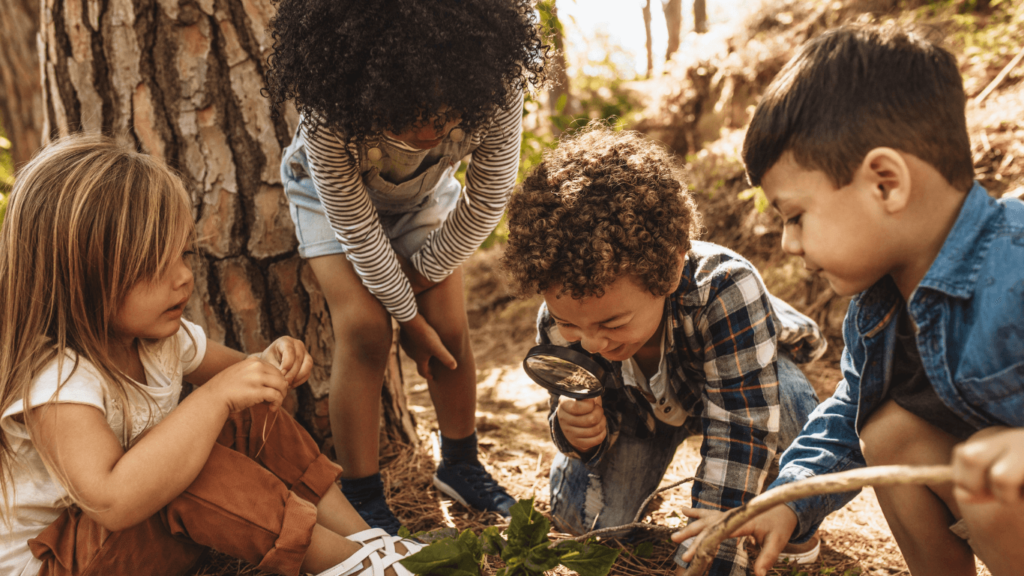
2. Hands-On, Practical Learning Through Play
Forest school is all about learning by doing. Instead of sitting at a desk, children might be tying knots, sawing wood, or using tools to create something meaningful. They’re not just learning about nature, they’re learning through nature.
If a child wants to build a shelter, they aren’t just playing. They’re practising teamwork, resilience and creativity. These experiences make learning feel relevant and memorable.
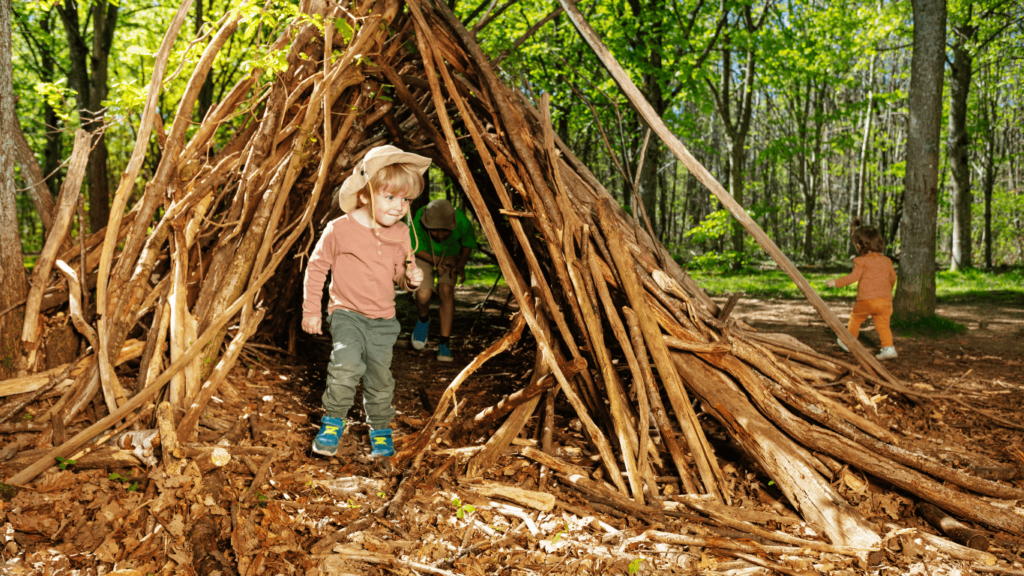
3. Develops Nature Awareness and Environmental Values
Spending time outdoors helps children connect with the world around them. They notice the changing seasons, track animal footprints, and observe how the weather affects the environment. These small moments spark curiosity and build a lasting respect for nature.
Being immersed in the outdoors also helps children develop a sense of calm and responsibility. They begin to understand the impact of their actions and become more environmentally aware.
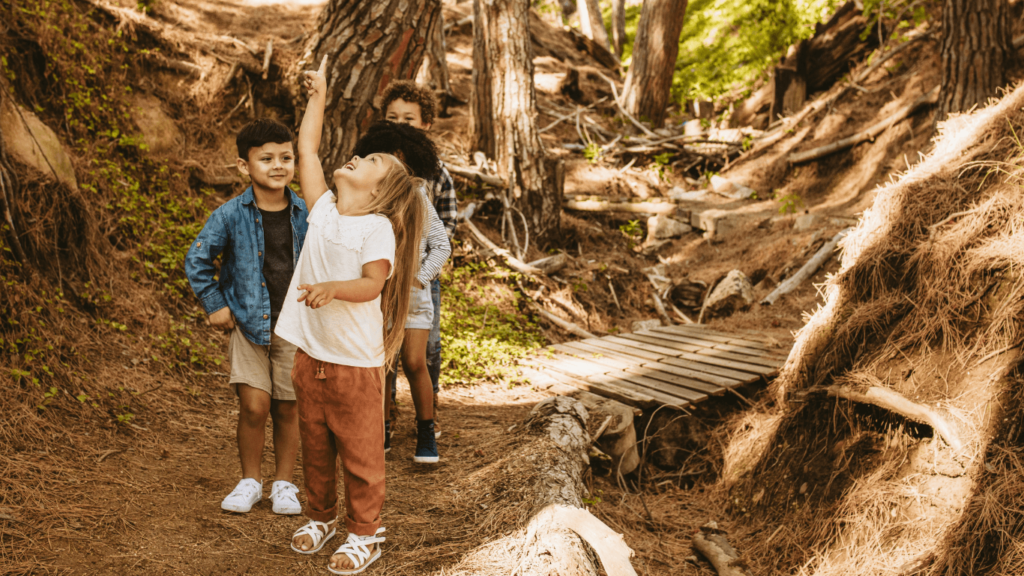
4. Proven Educational Benefits: What the Research Says
As part of my university dissertation, I studied the impact of outdoor learning on children’s development. The findings were clear: children learned more effectively when they were outside. Even when the same lesson was delivered indoors and outdoors, the outdoor version led to more engagement and deeper understanding.
Forest school, by its very nature, takes learning outside every time. The natural environment sparks curiosity, encourages problem-solving and supports a deeper connection to the learning process.
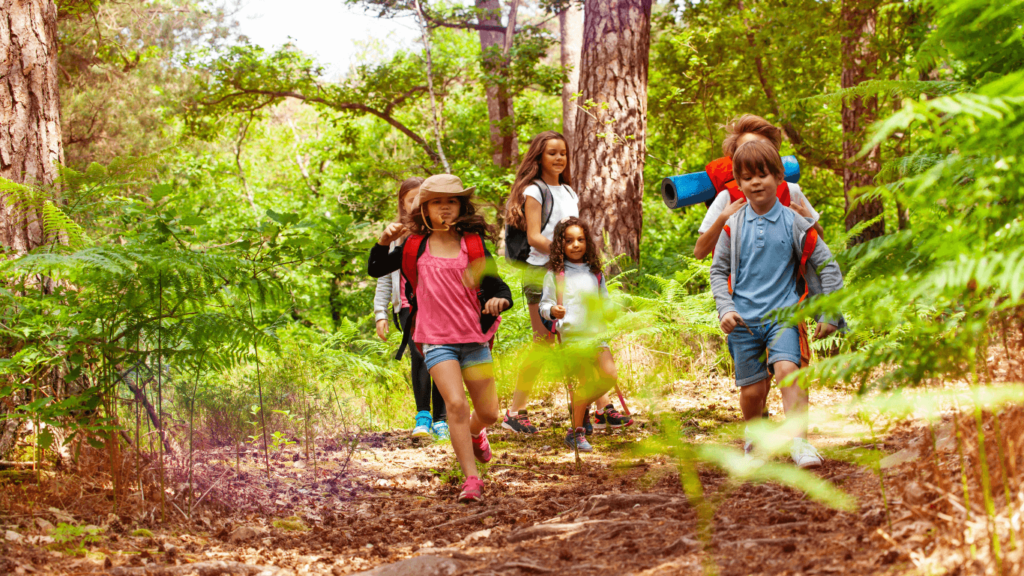
5. Boosts Physical Development and Motor Skills
Climbing trees, balancing on logs and digging in mud might look like play, but they’re helping children develop vital physical skills. The uneven ground and natural challenges found in forest schools strengthen both gross and fine motor skills.
Activities like sawing wood or tying rope develop coordination and hand strength, which later support tasks like writing or using cutlery. Forest school gives children the space to move freely and test their limits in a safe, supportive environment.
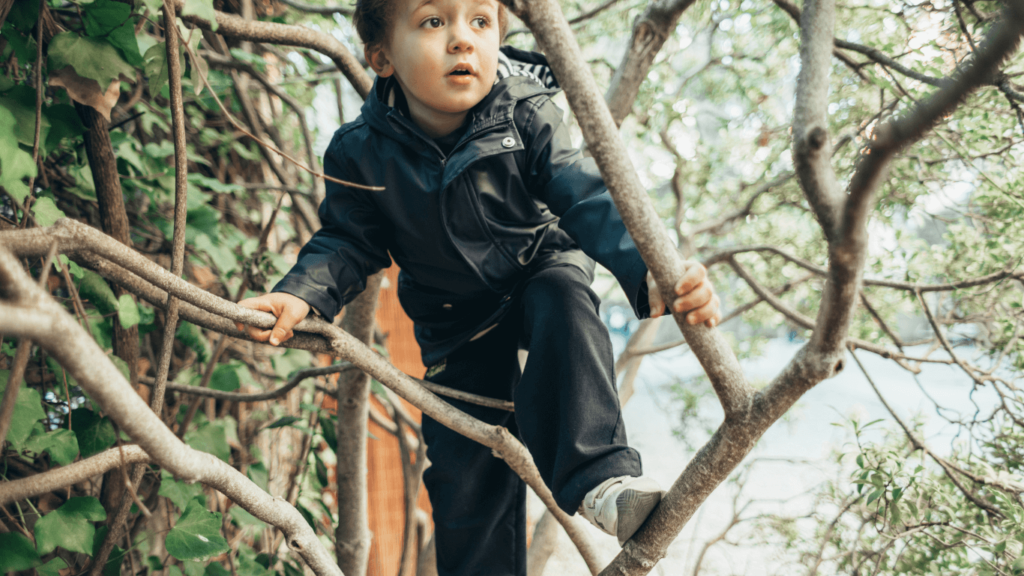
Our Final Thoughts
The benefits of forest school are profound but often overlooked. By encouraging children to engage with the outdoors, develop their independence, and face physical and mental challenges, forest schools equip children with lifelong skills. These experiences help children build resilience and perseverance, giving them the tools they need to navigate life’s challenges. In the long run, forest school gives children the confidence to embrace life’s ups and downs, guiding them toward a future of success and fulfilment.
Forest School Frequently Asked Questions
Yes. Forest school is adaptable to different ages, learning styles and needs. It’s especially beneficial for children who thrive with hands-on, exploratory learning.
Forest Schools in Northamptonshire
If you’re based in or around Northamptonshire and are considering forest school for your child, there are several brilliant local options to explore. These settings offer child-led outdoor learning in safe, natural environments.
